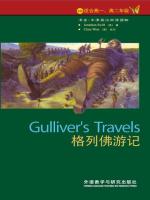读后感
用户698517
"Gulliver's Travels," a seminal work by Jonathan Swift, is a
rich tapestry of adventure, satire, and philosophical inquiry. As I
journeyed through Gulliver's voyages, I found myself immersed in a world
that, while fantastical, held up a mirror to the follies and virtues of
human nature. The book opens with Gulliver's shipwreck on the shores of
Lilliput, a land where the inhabitants are but six inches tall. Swift's
portrayal of the Lilliputians is both comical and critical, as their
petty squabbles over trivial matters like the height of a heel on a shoe
underscore the pettiness of human disputes. This voyage serves as a
lesson in humility and perspective, reminding us that our problems are
often magnified by our own egos. In Brobdingnag, the tables are turned,
and Gulliver is the tiny observer in a land of giants. Here, the giants'
simple-mindedness and lack of guile contrast sharply with the cunning
and deceit of the Lilliputians. Swift uses this contrast to satirize the
arrogance of the learned and the simplicity of the uneducated,
suggesting that wisdom is not always a product of intellect. The voyage
to Laputa is a scathing indictment of the scientific community and the
pursuit of knowledge for its own sake. The Laputians are so engrossed in
their abstract theories that they are oblivious to the practical needs
of their society. This serves as a warning against the dangers of
intellectual elitism and the neglect of practical wisdom. The final
voyage to the land of the Houyhnhnms is perhaps the most
thought-provoking. Here, Gulliver encounters a society of horses who are
rational, disciplined, and virtuous, while the human-like Yahoos are
depicted as vile and brutish. This stark dichotomy forces Gulliver—and
the reader—to question the very essence of humanity and the qualities
that make us civilized. Throughout "Gulliver's Travels,"
Swift masterfully employs satire to critique the social, political, and
moral issues of his time. Yet, the themes he explores are timeless,
inviting readers to reflect on their own society and the human
condition. The book is a poignant reminder that, despite our
technological advancements and intellectual pursuits, we must not lose
sight of our humanity and the virtues that truly define us as a species.



 京公网安备 11010802032529号
京公网安备 11010802032529号